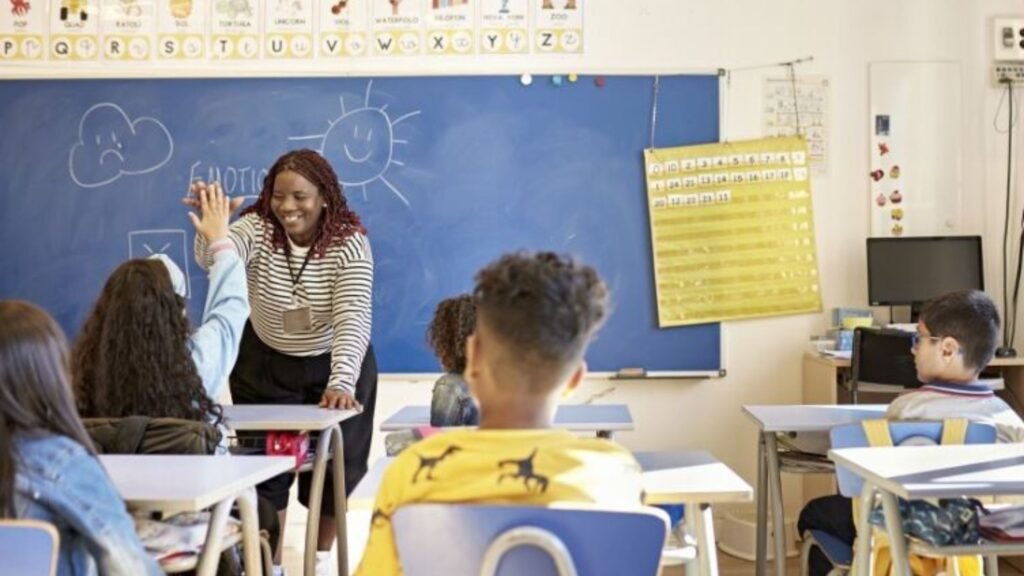Social and emotional learning (SEL) plays a crucial role in today’s educational landscape. Schools are no longer just institutions for academic learning, but also environments where students learn essential life skills. By focusing on SEL, educators help students develop self-awareness, emotional regulation, and interpersonal skills. These abilities prepare students for both academic success and life beyond school, equipping them to navigate challenges effectively.

1. What is Social and Emotional Learning?
Social and emotional learning refers to the process through which students acquire skills to manage emotions, set goals, show empathy, maintain relationships, and make responsible decisions. SEL emphasizes emotional intelligence, which is just as important as academic intelligence for overall development.
By incorporating SEL into the curriculum, schools teach students how to recognize and manage their emotions, fostering resilience. This ability to handle emotions supports students’ ability to focus, persist in learning tasks, and build strong relationships, which ultimately improves their academic outcomes.
2. The Academic Benefits of Social and Emotional Learning
Social and emotional learning directly contributes to better academic performance. Studies show that students engaged in SEL programs demonstrate higher test scores, better classroom behavior, and a greater ability to focus. This is because SEL equips students with the emotional tools needed to cope with stress, overcome challenges, and stay motivated.
Additionally, when students feel emotionally supported and understood, they become more engaged in their studies. SEL enhances a student’s ability to collaborate and communicate with peers, promoting an inclusive learning environment where everyone feels valued. This increased engagement translates into improved academic results and long-term success.
3. Enhancing Emotional Intelligence and Self-Awareness
One of the key components of social and emotional learning is building emotional intelligence and self-awareness. By teaching students to recognize and label their emotions, SEL helps them develop strategies to manage feelings like anxiety, frustration, or sadness. This emotional regulation is essential for maintaining focus and making good decisions in stressful situations.
Self-awareness also empowers students to identify their strengths and areas for growth, encouraging a growth mindset. Through reflective practices and guided discussions, SEL encourages students to take ownership of their learning and personal development, boosting confidence and self-esteem.
4. Strengthening Interpersonal Skills and Relationships
Another vital aspect of social and emotional learning is the development of interpersonal skills. SEL teaches students how to communicate effectively, listen actively, and resolve conflicts peacefully. These social skills are fundamental to building healthy relationships, both in school and in life.
By fostering empathy and understanding, SEL encourages students to appreciate diverse perspectives and cultures, which is especially important in today’s increasingly globalized world. Students who develop these interpersonal skills are better equipped to collaborate with others, which not only enhances classroom dynamics but also prepares them for future workplaces where teamwork is essential.
5. Reducing Behavioral Issues and Promoting Well-Being
Social and emotional learning helps reduce behavioral issues by teaching students how to regulate their emotions and respond to challenges in positive ways. Students who can manage their emotions are less likely to engage in disruptive behaviors. SEL promotes well-being by reducing anxiety, depression, and feelings of isolation among students.
Moreover, SEL creates a supportive environment where students feel safe to express themselves and seek help when needed. As schools emphasize emotional well-being alongside academic achievement, students learn the value of mental health and self-care. This holistic approach to education ensures that students are not only thriving academically but also emotionally.
Conclusion
In conclusion, social and emotional learning is essential for developing well-rounded students who are prepared for the complexities of life. By focusing on emotional intelligence, self-awareness, and interpersonal skills, SEL enhances academic performance, reduces behavioral problems, and promotes emotional well-being. As more schools embrace SEL, they create environments where students feel supported, confident, and ready to face challenges both inside and outside the classroom. The future of education lies in recognizing the importance of SEL as a foundation for student success and lifelong learning.

